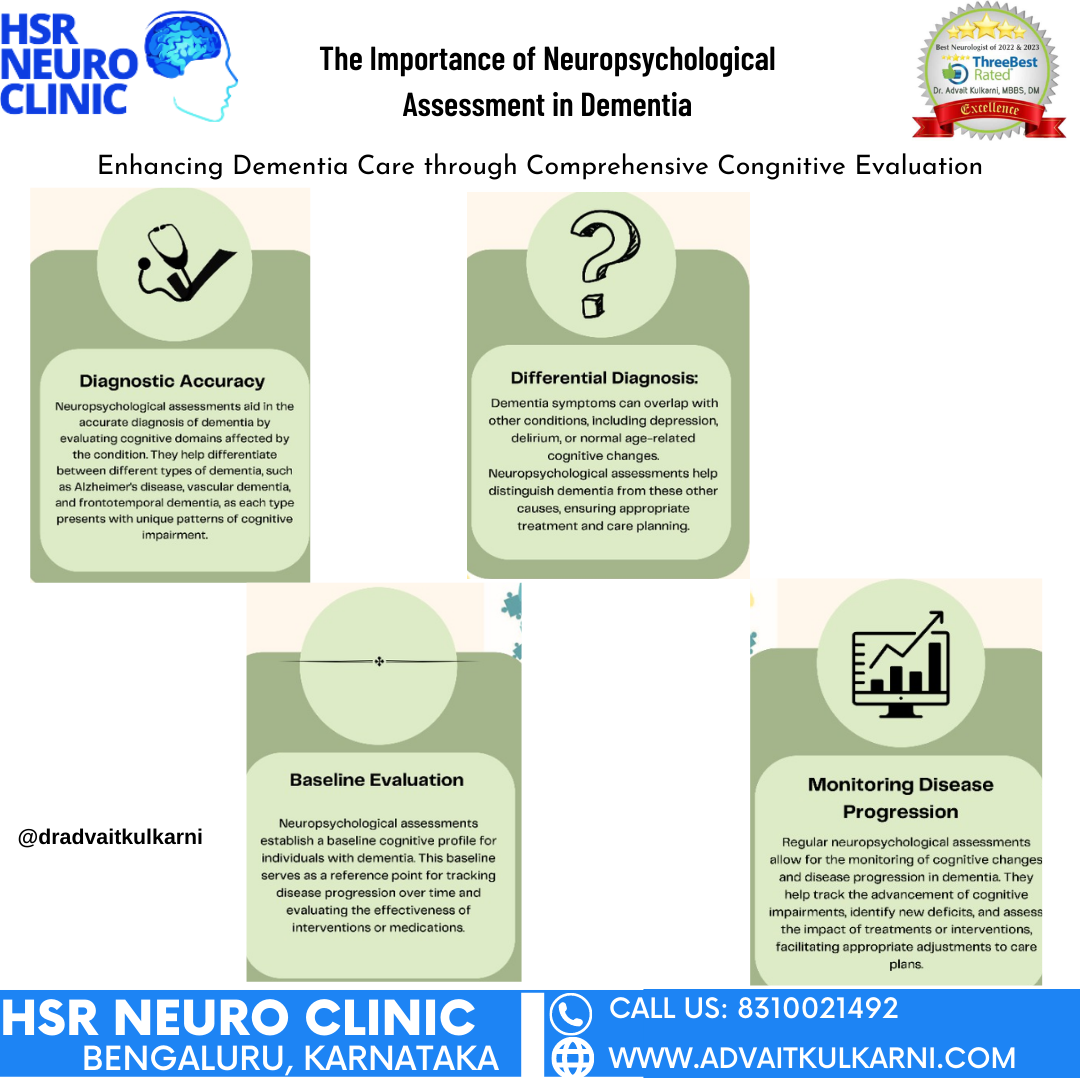+918048034088

This is your website preview.
Currently it only shows your basic business info. Start adding relevant business details such as description, images and products or services to gain your customers attention by using Boost 360 android app / iOS App / web portal.
The importance of neurological assessment in de...

The importance of neurological assessment in dementia cannot be overstated. Dementia refers to a group of neurological disorders characterized by a decline in cognitive abilities, such as memory, thinking, and reasoning, to the extent that it interferes with daily functioning. Neurological assessments play a crucial role in diagnosing and managing dementia, as they provide valuable insights into the underlying causes, progression, and potential treatment options for individuals affected by this condition. One primary reason for the significance of neurological assessment in dementia is the accurate diagnosis it provides. Dementia can have various causes, including Alzheimer's disease, vascular dementia, Lewy body dementia, frontotemporal dementia, and others. Each type of dementia has distinct clinical features and underlying pathologies, and a thorough neurological assessment aids in determining the specific type and cause of dementia. This information is essential for appropriate treatment planning and management. Neurological assessments also help differentiate dementia from other conditions that may present with similar symptoms. Conditions such as depression, delirium, mild cognitive impairment, or medication side effects can mimic dementia symptoms. By conducting a comprehensive neurological evaluation, healthcare professionals can rule out these alternative explanations and ensure an accurate diagnosis. Furthermore, neurological assessments in dementia assist in monitoring the progression of the disease. Dementia is typically a progressive disorder, with symptoms worsening over time. Regular evaluations of cognitive function, motor skills, sensory perception, and other neurological domains provide objective measures of disease progression. These assessments help healthcare providers understand the rate of decline, identify potential complications, and adjust treatment strategies accordingly. In addition to diagnosis and monitoring, neurological assessments contribute to the development of personalized care plans for individuals with dementia. Each person's cognitive and functional abilities, as well as their unique challenges and strengths, can be assessed through neurological evaluations.

